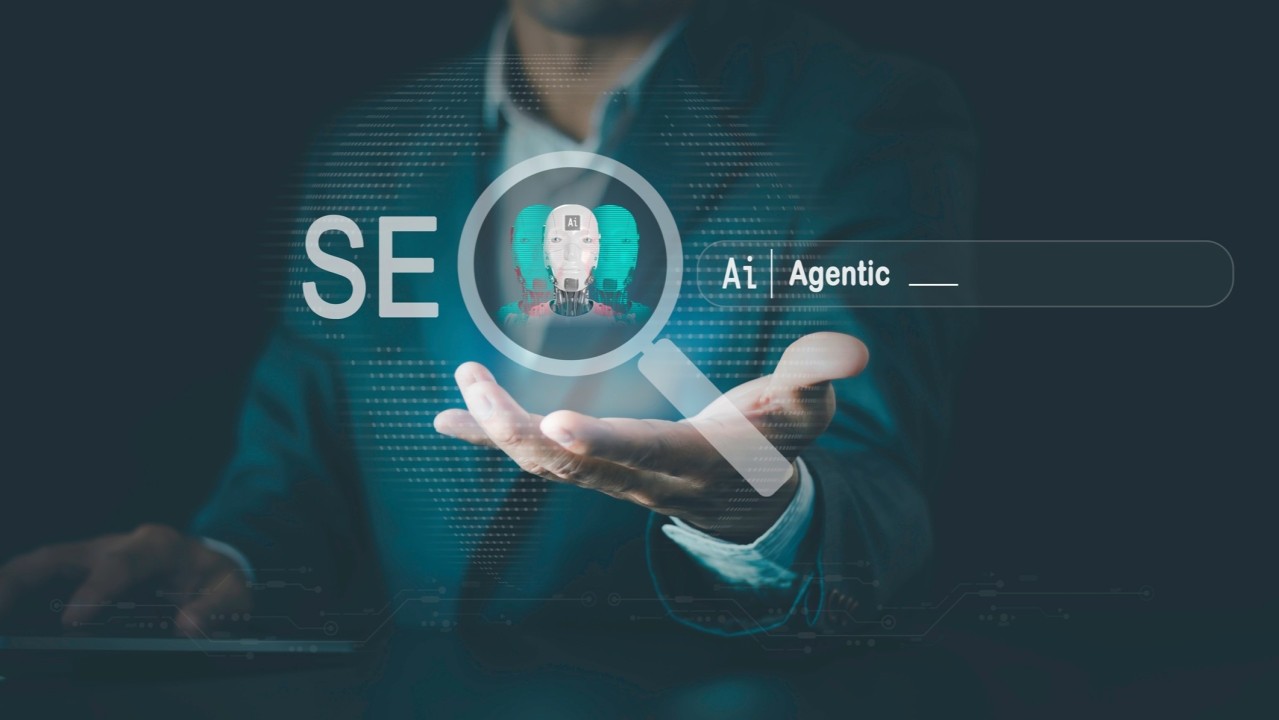News
From Data to Insights: AI-Driven SEO Tactics for 2024
In the rapidly evolving landscape of digital marketing, Search Engine Optimisation (SEO) remains a cornerstone strategy for businesses striving to enhance their online visibility and attract targeted traffic.
As we move further into 2024, the integration of Artificial Intelligence (AI) into SEO practices is not just a trend but a necessity for staying competitive. This article delves into the intricacies of AI-driven SEO tactics, exploring how data can be transformed into actionable insights to drive superior marketing outcomes.
The Evolution of SEO and the Role of AI
SEO has undergone significant transformations since its inception. Initially focused on keyword stuffing and backlink spamming, the practice has matured into a sophisticated discipline that prioritises user experience, content quality, and relevance. The advent of AI has accelerated this evolution, offering unprecedented opportunities to refine SEO strategies.
AI technologies, such as machine learning, natural language processing (NLP), and computer vision, have become instrumental in deciphering search engine algorithms and user behaviour. Google’s RankBrain, for example, is an AI system that helps process search queries, understanding user intent and delivering more relevant results. This shift towards AI-driven search algorithms necessitates a corresponding adaptation in SEO strategies.
Understanding Data-Driven SEO
At the heart of AI-driven SEO is data. Data provides the foundation upon which AI models are built, enabling them to identify patterns, predict outcomes, and optimise strategies. The key to successful data-driven SEO lies in the ability to collect, analyse, and interpret vast amounts of data effectively.
- Data Collection: The first step in data-driven SEO is gathering data from various sources. This includes website analytics, keyword research tools, social media metrics, and competitor analysis. Tools like Google Analytics, SEMrush, Ahrefs, and Moz provide valuable insights into website performance, keyword rankings, and backlink profiles.
- Data Analysis: Once data is collected, the next step is to analyse it to uncover trends and patterns. This involves using AI-powered tools to process large datasets, identifying correlations between different variables. Machine learning algorithms can sift through data to reveal insights that may not be immediately apparent through manual analysis.
- Data Interpretation: The final step is interpreting the analysed data to make informed decisions. This requires a deep understanding of SEO principles and the ability to translate data insights into actionable strategies. AI tools can assist in this process by providing recommendations based on data analysis.
AI-Driven SEO Tactics for 2024
As we look ahead to 2024, several AI-driven SEO tactics are poised to dominate the digital marketing landscape. These tactics leverage AI technologies to enhance various aspects of SEO, from keyword research to content optimisation and user experience.
- Advanced Keyword Research with AI
Keyword research remains a fundamental aspect of SEO, but AI is revolutionising how it is conducted. Traditional keyword research tools often provide a static list of keywords based on search volume and competition. AI-driven tools, on the other hand, offer dynamic insights that consider user intent, semantic relevance, and contextual usage.
AI tools like BrightEdge and MarketMuse utilise NLP to analyse the context in which keywords are used, providing a more nuanced understanding of keyword relevance. These tools can identify long-tail keywords and related phrases that might not have been considered otherwise, helping businesses target niche audiences more effectively.
- Content Optimisation and Generation
Creating high-quality, relevant content is critical for SEO success. AI-driven content optimisation tools like Clearscope and SurferSEO analyse top-performing content in a given niche, identifying key themes, word counts, and structural elements that contribute to high rankings.
Moreover, AI-powered content generation tools, such as GPT-4, can assist in creating engaging and informative content. While AI-generated content should not replace human creativity, it can augment content creation by providing initial drafts, suggesting headlines, and offering topic ideas based on current trends and user interests.
- Voice Search Optimisation
With the increasing popularity of voice-activated devices like Amazon Echo and Google Home, voice search optimisation has become essential. AI plays a crucial role in understanding natural language queries and optimising content for voice search.
Voice search queries are typically longer and more conversational than text queries. AI-driven tools can analyse voice search data to identify common phrases and questions, allowing businesses to tailor their content accordingly. Incorporating these conversational keywords into website content can improve visibility in voice search results.
- User Experience and Personalisation
User experience (UX) is a significant ranking factor for search engines. AI can enhance UX by personalising website content and layout based on user behaviour and preferences. Personalisation engines like Optimizely and Dynamic Yield use machine learning to analyse user interactions and deliver tailored content recommendations.
For instance, AI can dynamically adjust website elements such as navigation menus, call-to-action buttons, and content blocks to match individual user preferences. This not only improves user engagement but also increases the likelihood of conversions.
- Predictive Analytics for SEO
Predictive analytics involves using historical data and machine learning algorithms to forecast future outcomes. In the context of SEO, predictive analytics can help identify trends, anticipate changes in search engine algorithms, and optimise strategies accordingly.
Tools like PaveAI and Conductor Searchlight leverage predictive analytics to provide actionable insights. For example, they can predict which keywords are likely to gain or lose popularity, allowing businesses to adjust their content strategies proactively.
- Local SEO and Hyperlocal Targeting
Local SEO is crucial for businesses that rely on local customers. AI can enhance local SEO efforts by analysing location-based data and optimising content for hyperlocal searches. AI-driven tools can identify local search trends, analyse competitor strategies, and provide recommendations for improving local search visibility.
Additionally, AI can assist in managing and optimising Google My Business (GMB) listings. Tools like Moz Local and Yext use AI to monitor and update GMB profiles, ensuring consistent and accurate information across all platforms.
The Future of AI-Driven SEO
As we look to the future, the integration of AI into SEO is expected to deepen, with new technologies and innovations driving further advancements. Here are a few trends to watch for in the coming years:
- AI-Powered Chatbots and Conversational AI
AI-powered chatbots and conversational AI are becoming increasingly sophisticated, providing seamless and personalised user interactions. These technologies can assist with customer inquiries, guide users through the buying process, and provide relevant content recommendations. Integrating chatbots into SEO strategies can enhance user experience and improve engagement metrics.
- Visual Search Optimisation
Visual search is gaining traction, with platforms like Pinterest and Google Lens allowing users to search using images instead of text. AI technologies, such as computer vision, are critical for visual search optimisation. Businesses can optimise their visual content by using AI to analyse images, identify relevant tags and descriptions, and improve visibility in visual search results.
- AI-Enhanced Content Management Systems
Content management systems (CMS) are evolving to incorporate AI capabilities. AI-enhanced CMS platforms can analyse user behaviour, provide content recommendations, and automate SEO tasks such as meta tag generation and internal linking. These systems can streamline content management and improve overall SEO performance.
- Ethical AI and Data Privacy
As AI becomes more integral to SEO, ethical considerations and data privacy will become increasingly important. Businesses must ensure that their AI-driven strategies comply with data protection regulations and prioritise user privacy. Transparency and ethical AI practices will be crucial for building trust with users and maintaining a positive brand reputation.
The integration of AI into SEO is revolutionising the digital marketing landscape, offering unprecedented opportunities to enhance search visibility, user experience, and overall marketing outcomes. By leveraging AI-driven SEO tactics, businesses can transform data into actionable insights, stay ahead of industry trends, and achieve sustainable growth.
As we move further into 2024, it is clear that AI will continue to play a pivotal role in shaping SEO strategies. From advanced keyword research and content optimisation to predictive analytics and local SEO, AI-driven technologies are set to redefine the future of SEO. By embracing these innovations, businesses can unlock new levels of efficiency, effectiveness, and success in their digital marketing endeavours.





The Ultimate Social Media Guide
With the ever-growing power of social media, we use the latest techniques, video, and animation software to craft eye-catching social media assets that make your brand pop. Our designers, wielding Adobe Creative tools, create distinctive animations and graphics to illuminate your brand story and highlight your products or services. Want a unique design? No problem – we also offer bespoke designs to match your brand aesthetic.